How to build a team in the midst of the great resignation – PART 1
Branding & Company Culture - Building Foundations
As a Branding consultant for Virgin Startup, I often get questions from the business community. A recent question that came up was about team building and company culture;
“How do we ensure our new hires stick around while the business develops, especially in this ‘great resignation’?
And where we can find the right leadership that can help us to manage our team and further grow our business?”
Building Company Culture
This question can be answered from a business strategy perspective but I’ll be looking at it through a branding lens.
Seeking to grow a team and attract the right leadership is all about having the right type of company culture. And building the right brand values is at the heart of that.
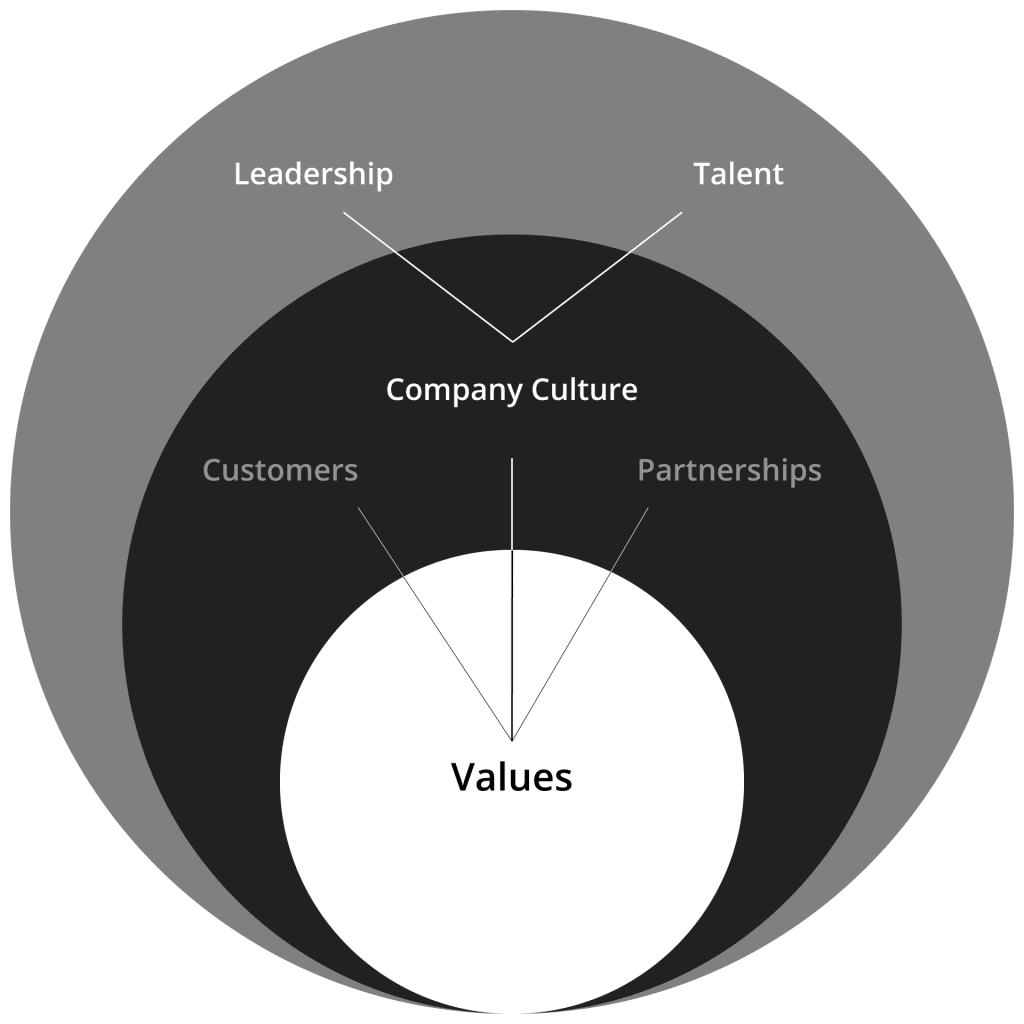
Values impact your business in three key areas:
• Customers — creating a loyal brand fan base
• Talent & Leadership — Attracting, hiring and retaining your people
• Partnerships — which companies do your values align with that will reinforce your brand
As you can see, values impact the company both internally and externally. Since the focus of this article is company culture and team building, I’ll be honing in on talent and internal brand values.
How to Create Values?
To identify what you value as a business, have a look back at your ‘why’: the reason your company exists beyond making a profit. What you stand for, and what you stand against.
Your brand values can easily stem from your brand purpose. What change are you focusing on making that will impact your customers’ lives for the better? Does this impact society at large? Is focusing your business around this core belief redirecting society in a better direction?
Brand purpose:
1. Adds value to the lives of customers and society
2. Sets the brand apart from competitors
3. Provides clarification and strong corporate culture
It should be unique and inspirational. This is the emotional core of your brand that people will connect to, be they consumers, employees or business partners.
For more on brand purpose, read this article where I spoke about it in-depth.
After you have identified your brand purpose, it’s just a case of breaking down this bigger goal or ‘cause’ to a smaller set of values that will ‘set the tone’ for the company culture.
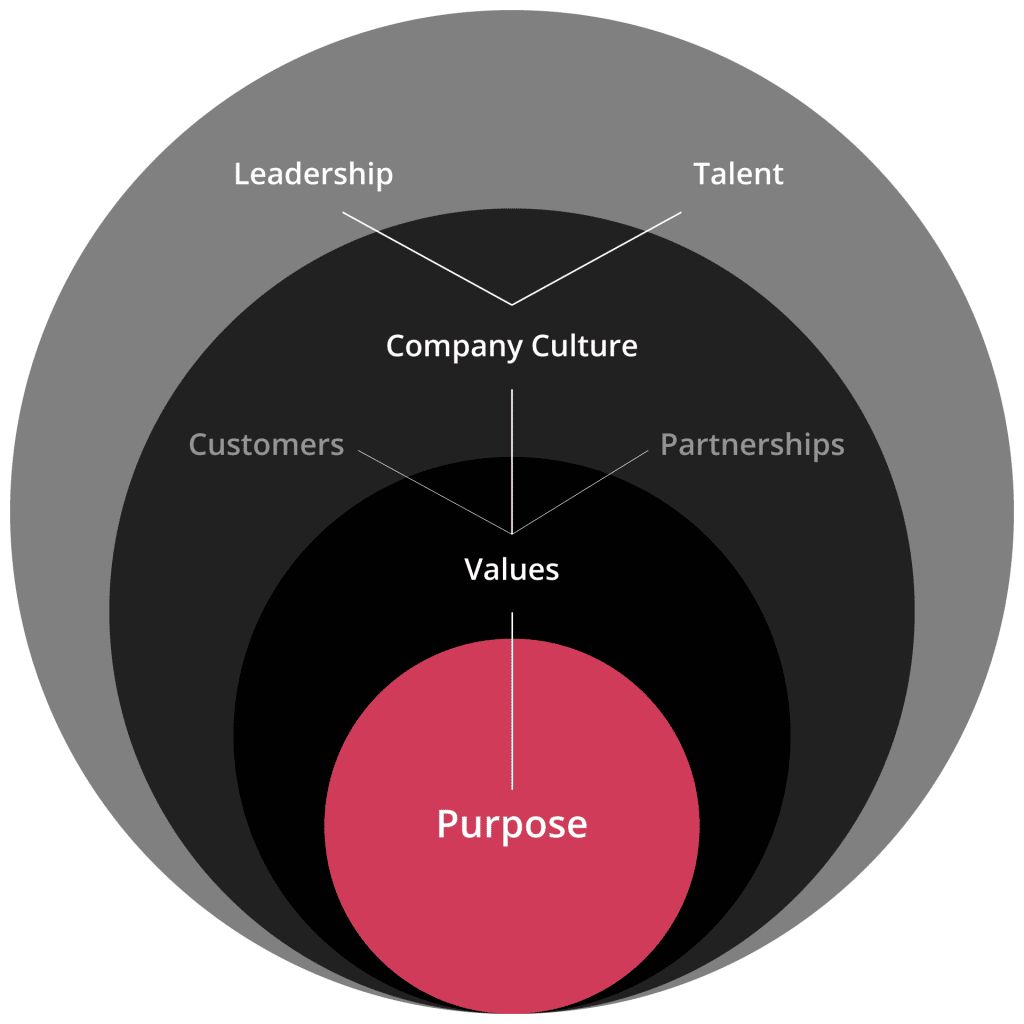
Remember there is a chain reaction that happens; brand purpose leads to values which reinforces a shared belief in the purpose, which then shapes behaviour and creates the building blocks of your company culture.
Let’s look at an example Meander Apparel from the Virgin Startup Podcast.
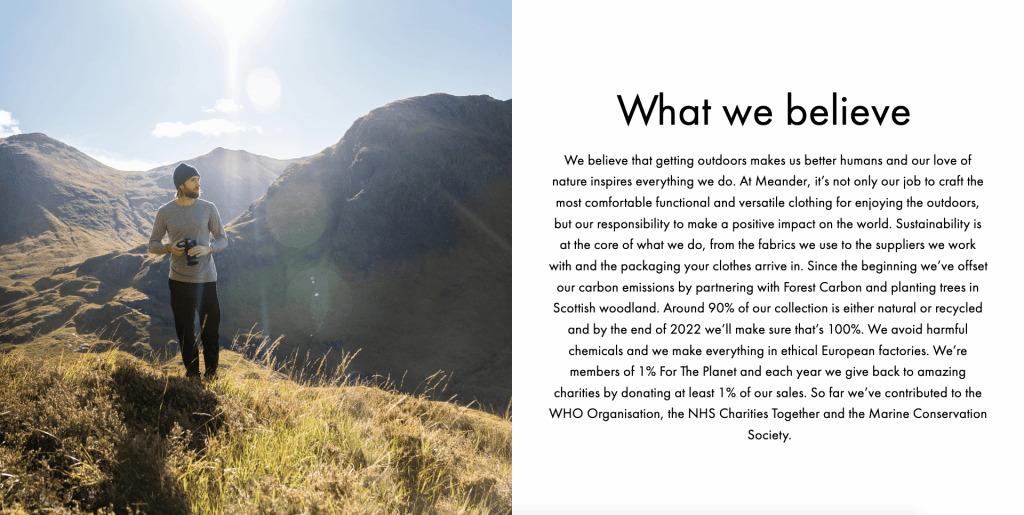
Just looking at their about page we can break down:
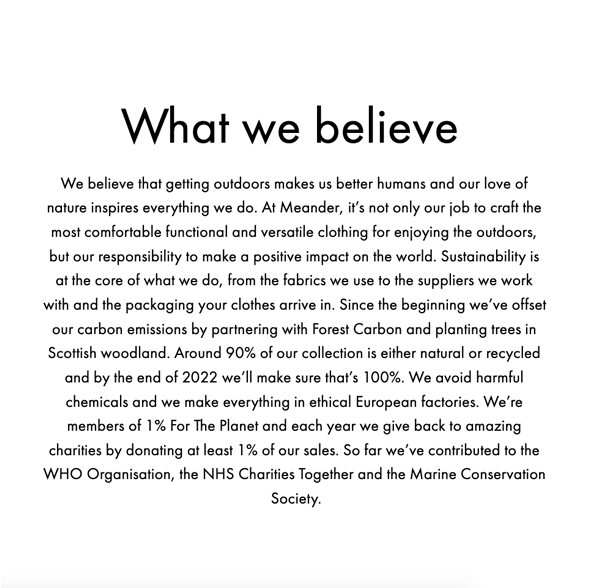
• Belief = Getting outdoors makes us better humans and our love of nature inspires everything we do
• Purpose = To craft the most comfortable, functional and versatile clothing for enjoying the outdoors
Or as stated on the podcast:
To create sustainable fashion that is both comfortable for cycling while looking stylish enough to be worn off bike.
• Value = Our responsibility to make a positive impact on the world (Meander value the environment)
To analyse this deeper I would speculate:
Values = positive impact on the environment, conservation of the natural world, responsibility, accountability, sustainability, personal and environmental health and wellbeing.
How/ behaviour = supply chain, ethically sourced materials, recyclable materials, fashionable/aesthetically pleasing, circular economy.
But when it comes to articulating and shaping our values, should these naturally evolve out of the company or should they be consciously ‘designed’?
Organic or intentional values?
In the branding industry, there’s been much discussion about whether values should be organic or engineered.
I prefer the term ‘intentional’ as opposed to ‘engineering’ because it sounds less manipulative and scheming.
The term ‘organic values’ implies letting things be and seeing how they evolve. ‘Intentional values’ is having a starting point by setting a purpose and outlining what it means for you to be a company.
Organically derived values can be a double-edged sword; they are empowering when you allow employees to define how they will operate, but what if the values and culture you are cultivating turns out to be toxic?
Brew dog’s ‘sexist boys club’ culture organically grew out of what was already there with the founders and core staff. So the question is are you allowing a good or toxic culture to evolve and develop organically?
Values that are intentional, on the other hand, have been derived from a deeply considered core idea which has been refined and distilled into a brand purpose.
There is also a way to combine these. When you steer organic values by a brand purpose, you make them simultaneously both organic and intentional.
This way you get the best of both worlds, empowering your employees within clearly defined boundaries that you can add, subtract and amend from.
But you should also ensure your core purpose and what you stand for is not flawed to begin with.
A Flawed Core Purpose & Its Impact On Brand Culture & Perception
Here are some examples of brands that stood for ideas that didn’t work.
Abercrombie & Fitch centred their brand around discrimination; they exclusively picked out staff that were white and ‘good looking’. This resulted in them being sued by people from other races and identities and even their own employees. Cases that won had an impact on their brand reputation.
*Even though A&F were forced to pivot to be more inclusive, the documentary above still had an impact on their sales.
Brewdog dismissed their brand purpose altogether, by not allowing it to influence their company culture.
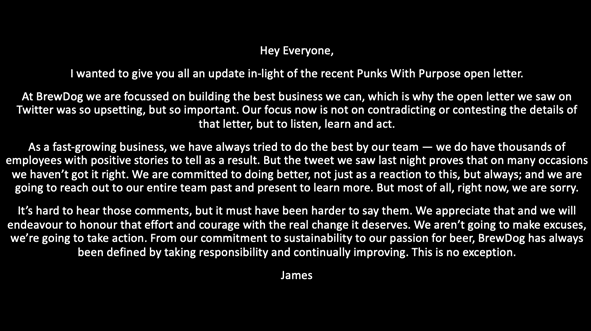
Instead, by putting profit over purpose, they harvested a toxic work culture. They prioritised being ruthless in their growth which had a negative impact on their staff and their mental health, which in turn, damaged their brand.
Victoria’s Secret much like Abercrombie & Fitch, focused on creating an unattainable aspiration by selecting models with slim and flawless eurocentric bodies. To its audience the brand came to represent one that supports body shaming and misogyny.
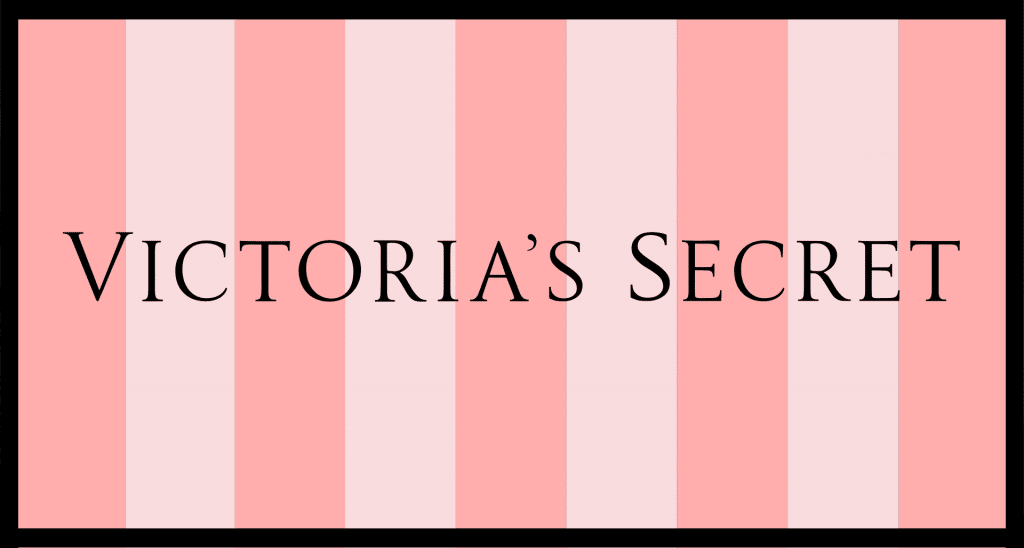
Being Exclusionary
It could be argued that – “Well, our brand is deliberately [this way] and if someone doesn’t like it, then our brand is not for them”.
You are essentially putting your stake in the ground for what you stand for. And this is great because the purpose of branding, after all, is to define who you are. But ensure it’s not crossing culturally sensitive boundaries or the law itself.
Cultural Reckonings
When you do cross these boundaries, counterculture in the form of a social movement could threaten your business and take you down.
In the examples of Abercrombie & Fitch, Brewdog and Victoria’s Secret their brands were centred around ideas which were not only offensive (racism & sexism) but also protected by the law, (health and equality).
It is important to be aware of the wider cultural implications of your claim as part of being a savvy entrepreneur.
Brands don’t live in isolation, they live in society. And so the wider social, environmental, ecological and political culture will impact your brand and how you are perceived, especially in this age of the conscious consumer.
Going back to being exclusionary, this is not problematic as long as it’s not offensive.
As an example saying “We are a vegan-only brand and only focus on customers to whom this is important to. So if you want a steak, we’re not for you”. Is completely acceptable and makes you stand out as a vegan specialist.
Remember great brand positioning is not just who you are for, but also who you are against because if you are for everyone, you are for no one.
Authenticity or Purpose Washing?
Now that we’ve addressed having a solid-brand-purpose-foundation, from which great brand values flow, authenticity is the next big area of focus when building brand culture.
When companies use brand purpose as a box-ticking exercise but don’t live up to them, they get accused of ‘purpose washing’; ‘cleansing’ their brand perception by appearing to stand for something, (but not following through — as was the case with Brewdog).
Authentically behaving according to your brand purpose is vital, whether you decide to allow your values to organically evolve or design them around a sound brand purpose, what really matters is that you are true to them, or you could invoke a reckoning of your own.
Conclusion
In closing, we can see the great impact brand values have on the entire company and its culture. It is what inspires and creates loyalty to your brand helping you attract the right talent and leadership alike. It is an idea that all your people rally around.
As we’ve shown, it is much more than a simple exercise of plucking out a few well-meaning ideas to steer your company. When we think a little deeper we realise culture and behaviour is always based in a set of beliefs and it is this belief or purpose that needs to be addressed first.
Now that we have defined the foundation of what makes up a great company culture in theory we will go into more detail on applying this foundation into action in part 2 of this brand culture series.
—
If you need help with crafting your brand purpose, values, shaping your company culture and overall looking at your brand more strategically, do get in touch.
Does design really impact how your brand is perceived? We break down how...
We got a chance to interview Kevin R Smith on his new book...
“Resilience is the flexibility to respond to changing circumstances. It’s what allows brands...




